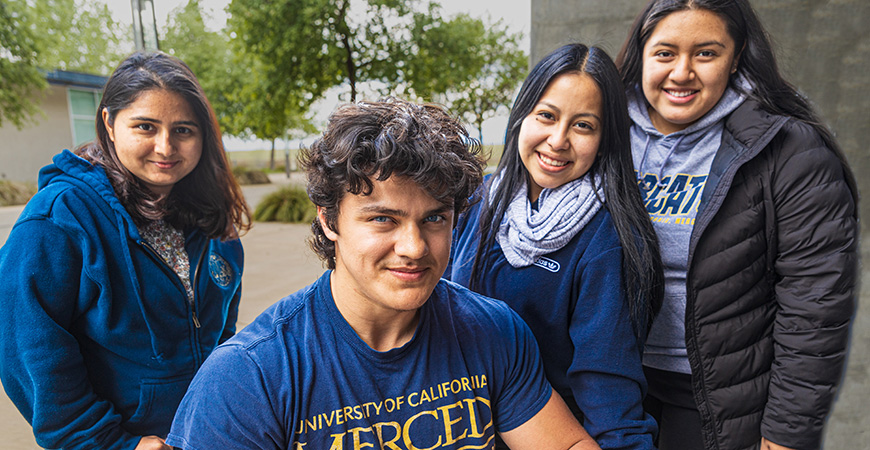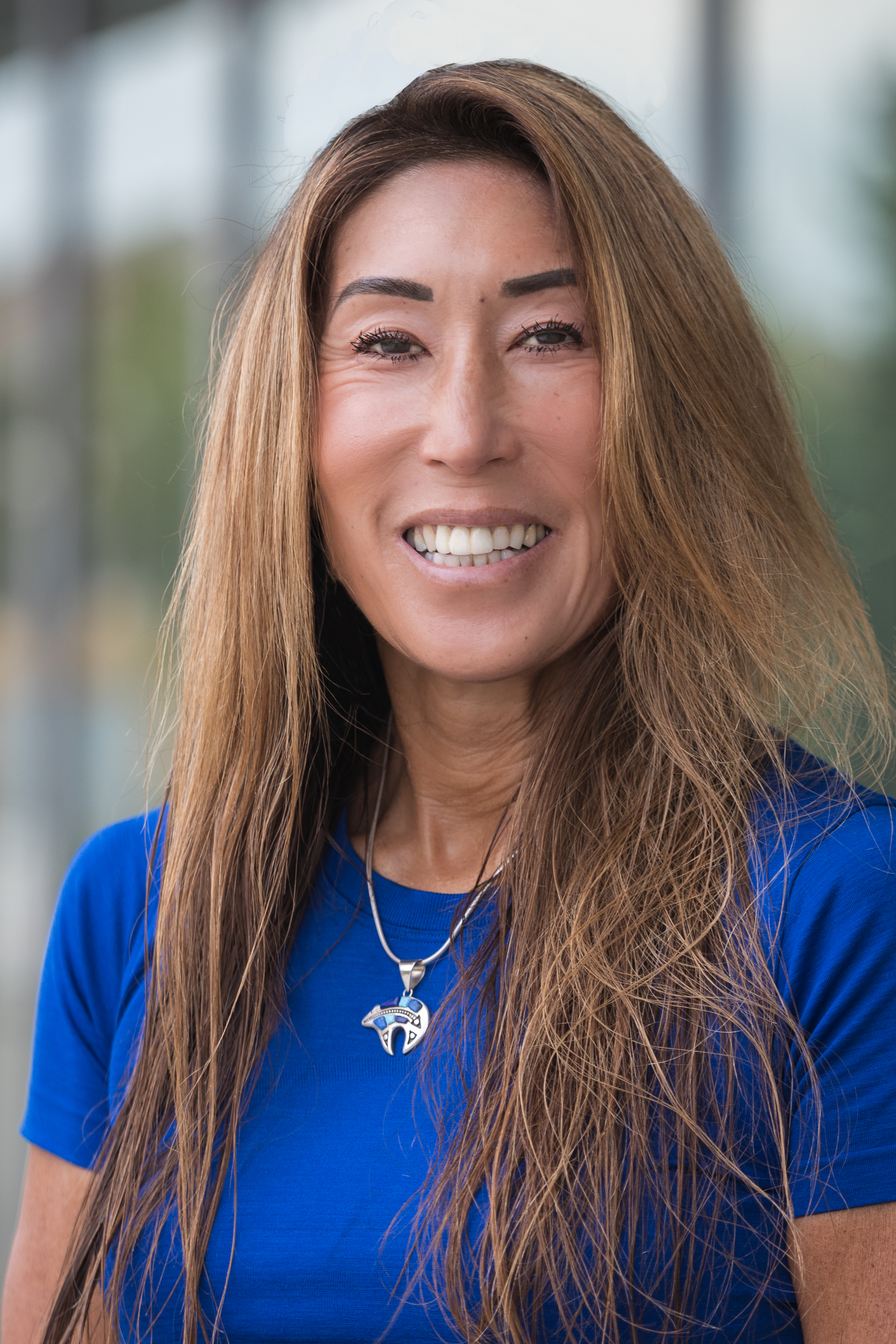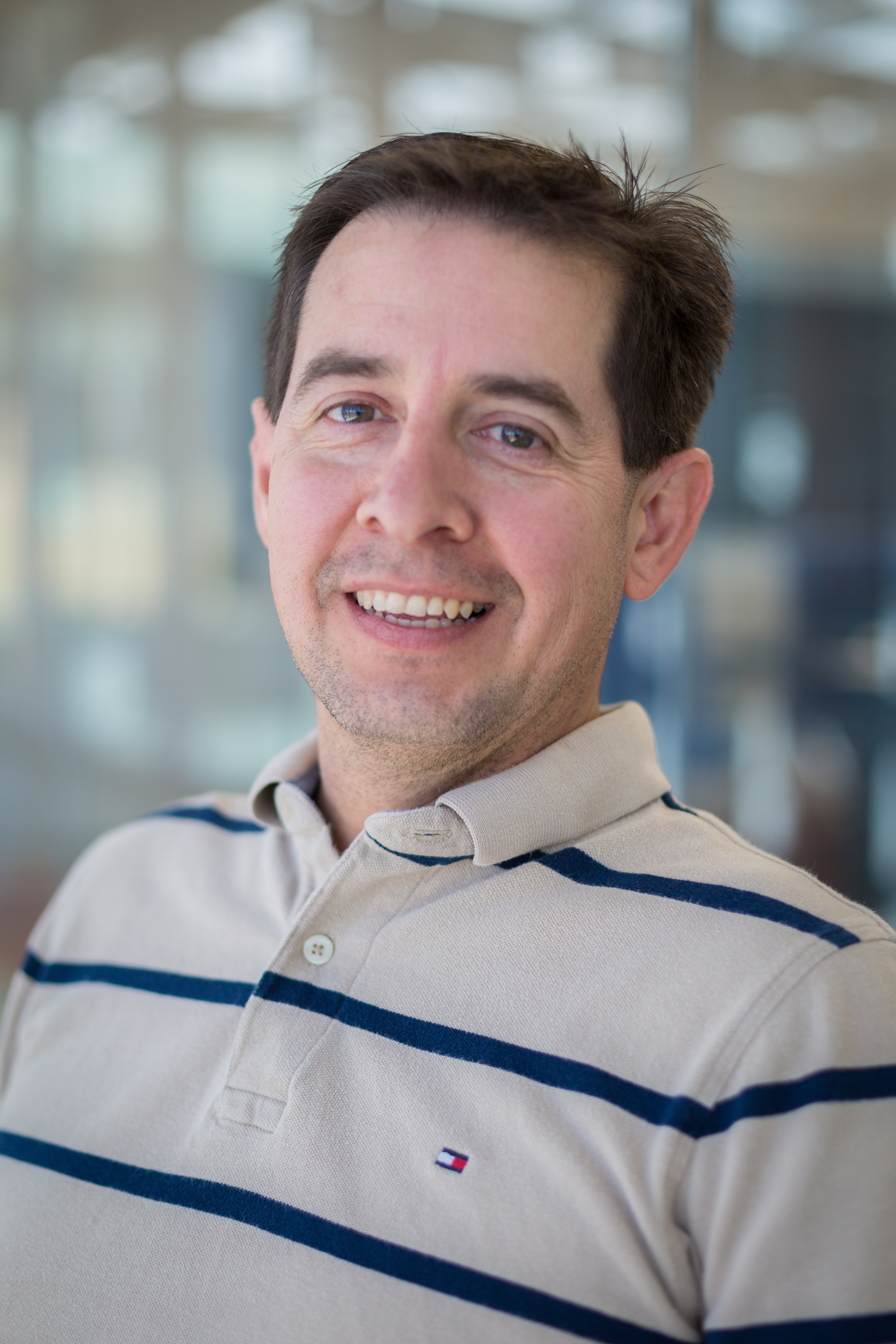
Starting this fall, undergraduates interested in the biomedical sciences will have an opportunity to take part in a new and innovative training program that will give them strong foundations in computational biology, systems biology and big data analytics.
The National Institutes of Health (NIH) has funded a proposal by molecular and cell biology professors Rudy M. Ortiz and Michele Nishiguchi (Nish) from the School of Natural Sciences. They plan to take a small cohort of rising juniors each year and pair them with affiliated faculty and peer mentors to train and prepare them for advanced degree programs and research careers.
 “Bioinformatics is where all the jobs are,” Nishiguchi said. “It's one of the fields that pays exceedingly well.”
“Bioinformatics is where all the jobs are,” Nishiguchi said. “It's one of the fields that pays exceedingly well.”
The students will receive stipends and have most of their tuition and fees covered as they participate in structured professional skills, development training events and hands-on research in their preferred areas of study within biology, chemistry and mathematics.
NIH funds these Undergraduate Research Training Initiative for Student Enhancement (U-RISE) grants to develop a diverse pool of undergraduates who complete their baccalaureate degrees and transition into and complete biomedical, research-focused higher degree programs.
 Co-directors Ortiz and Nishiguchi hope to attract a diverse group of applicants because “national statistics clearly indicate a disparity in the number of underrepresented minorities obtaining higher degrees in biomedical or biobehavioral disciplines,” they wrote in their proposal.
Co-directors Ortiz and Nishiguchi hope to attract a diverse group of applicants because “national statistics clearly indicate a disparity in the number of underrepresented minorities obtaining higher degrees in biomedical or biobehavioral disciplines,” they wrote in their proposal.
“Our program is unique for the NIH portfolio in this grant program in that it is thematic,” Ortiz said. “Science has changed in the last 20 or 25 years with the advent of modeling or its predictive value. Modeling transcends every area of science, and the models are getting more and more advanced and accurate. Now, with the development of ‘omics’ — such as genomics, metabolomics, proteomics — advanced computation is making our science that much better.
“It's the wave of the future, so we want to give our students the opportunity to learn these skills so that when they leave here, they'll be really well prepared to apply their knowledge and approaches to their own work.”
For example, Nishiguchi's lab is sequencing whole genomes for squid and the bacteria that live inside them and examining the mechanisms that tie them together.
“You can't just do that by looking at them,” she said. “You need these really powerful computational tools. These days, it's easy to get the data. It's just a matter of learning what to do with that data when you get it.”
Other faculty mentors involved with URISE@UCMerced include applied mathematics Professor Suzanne Sindi, computational biology Professor Dave Ardell and life and environmental sciences Professor Emily Jane McTavish.
The program officially started June 1, so Ortiz and Nishiguchi formed the first cohort by inviting students who were already engaged in research. A new four-student cohort will be formed each spring, and each cohort spends two years in the program. Applications for the spring 2023 cohort will begin being taken at the end of the coming fall semester.
For more information, email Ortiz or Nishiguchi, and watch the Undergraduate Research Opportunities Center site for application updates.
It's the wave of the future, so we want to give our students the opportunity to learn these skills so that when they leave here, they'll be really well prepared to apply their knowledge and approaches to their own work.
Brenda Ortiz

Senior Public Information Representative
Office: (209) 228-4203
Mobile: (209) 628-8263






